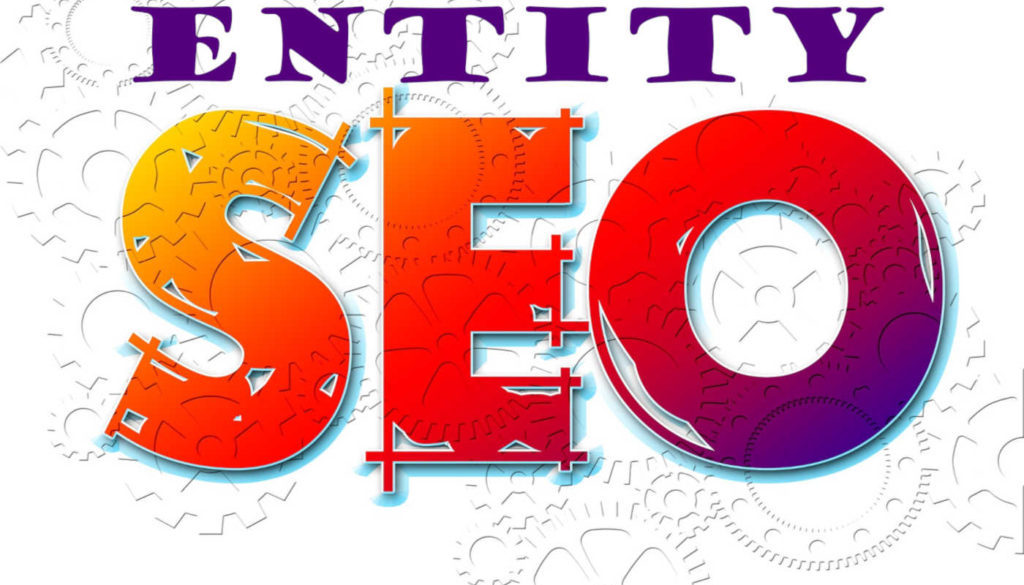Unlocking the Secret to Higher Rankings: The Power of Entity SEO Explained
There is one type of SEO that you may or may hot have heard of. It’s one that is not very common to laymen or seasoned SEO’s as well- It’s Entity SEO – Entity SEO is a powerful approach that focuses on distinct identities and concepts to improve web visibility.
In this comprehensive guide, we will unveil what Entity-based SEO is, its importance in modern marketing strategies, and how you can harness its potential to boost your brand.
Key Takeaways
- Entity SEO focuses on optimizing website content and search results based on distinct identities or entities, such as people, organizations, or concepts.
- Entities play a vital role in modern SEO strategies as they form the building blocks for how search engines understand and rank content.
- To harness the potential of entity-based SEO, businesses need to identify relevant entities for their brand, build an entity-driven content strategy and optimize entity markups on their website.
- Benefits of entity – based SEO include improved search engine visibility through higher rankings on SERPs, enhanced user experience through relevant and accurate information presentation and increased relevance and authority.
Understanding Entity SEO
Entity SEO refers to the process of optimizing website content and search engine results based on distinct identities or entities, such as people, organizations, or concepts.
Defining Entity-based SEO
Entity-based SEO is a cutting-edge approach to search engine optimization that focuses on the distinct identities, or entities, within your content.
These can include people, organizations, locations, and even concepts.
This advanced technique takes advantage of emerging natural language processing capabilities used by major search providers like Google. By identifying and emphasizing key entities within your content, you are better able to communicate its relevance not only to users but also to Google’s algorithms.
For instance, if you own a restaurant business in Connecticut offering vegan cuisine, important entities might include “vegan dishes,” “Connecticut,” or even renowned food critics who’ve praised your establishment – all these would be integral elements in crafting an effective entity-focused SEO strategy.
How Google Uses Entities
Entities play a crucial role in how Google operates. The search engine now focuses on entities, rather than just keywords, when trying to understand the context and meaning of website content.
Essentially, an entity refers to a distinct identity that creates a specialized object or concept – it can be anything from a person’s name to a specific location or organization.
For example, if someone searches for “coffee shops near me,” Google will not only look at pages with the phrase “coffee shop” but also pages that mention coffee-related entities like caffeine or roasted beans.
By understanding these related entities, Google can pinpoint the most relevant results for its users.
Overall, optimizing your website and content around relevant entities is becoming increasingly important in modern SEO strategies since it goes beyond simply using popular keywords and instead focuses on providing value through comprehensive contexts surrounding different concepts within your industry.
Importance Of Entities In SEO
Entities play a vital role in SEO as they form the building blocks for how search engines understand and rank content. By optimizing for entities, businesses can improve their online visibility by ensuring that their content accurately reflects specific people, organizations or concepts that are relevant to users’ search queries.
For example, if a business is selling athletic shoes, it needs to ensure it’s optimizing its content for all of the entity meanings associated with such shoes – including brand names, sporting activities and materials used – in order to increase its chances of surfacing high up in SERP features like knowledge panels and rich snippets.
How To Use Entities To Improve SEO
Identify relevant entities for your brand, build an entity-driven content strategy, and optimize entity markups on your website to improve SEO.
Identifying Entities For Your Brand
One key aspect of entity-based SEO is identifying the distinct identities that make up your brand. Here are some tips on how to do so:
- Think about the products or services you offer. These can be entities in themselves, along with any associated brands, trademarks, or logos.
- Consider your target audience and customer base. Who are they? What are their interests? What problems do they have that your brand can solve?
- Look at your website and social media profiles. What words or phrases do you use to describe yourself and your offerings? Are there any themes or topics that consistently come up?
- Conduct keyword research to identify relevant search terms that relate to your brand and its offerings.
- Use Google’s Keyword Planner tool, as well as other analytics tools, to identify search trends and patterns related to your brand.
- Check out the competition – what entities are they using in their content strategy? How can you differentiate yourself from them?
By identifying the distinct entities that make up your brand, you can begin to build an entity-driven content strategy and optimize for entity relevance, both of which can significantly improve your search engine visibility and user experience.
Building An Entity-driven Content Strategy
Creating an entity-driven content strategy is crucial to optimizing your website for search engines. By following these steps, you can improve your chances of a successful SEO strategy:
- Identify the entities associated with your brand: Start by identifying the main people, organizations, and concepts associated with your brand.
- Research entity-related keywords: Conduct keyword research and analysis to identify relevant keywords for each entity.
- Develop high-quality, relevant content: Craft content that is tailored to each entity and reflects their interests, needs, and goals.
- Optimize entity markups on your website: Use structured data and rich snippets to optimize your website’s markup for each entity.
- Build authoritative backlinks and citations: Focus on building high-quality backlinks from reputable sources that reference each entity.
- Leverage topic association SEO: Implement topic association SEO techniques to connect related entities on your site.
By following these best practices, you can create an entity-driven content strategy that not only improves your rankings but also enhances user experience and establishes you as a valuable source of information for users.
Optimizing Entity Markups On Your Website
To fully leverage the potential of entity-based SEO, it’s crucial to optimize the entity markups on your website. Here are some key practices to consider:
- Use structured data to mark up entities: Structured data helps Google identify and understand the entities on your page better. Implementing schema markup for each entity can improve search engine visibility and increase click-through rates.
- Keep entity information consistent: Consistency is essential when it comes to marking up entities. Ensure that the name, description, and other relevant details match across all instances of an entity.
- Include branded entities: Brand entities help establish a strong online presence and increase brand recognition. Mark up business names, logos, taglines, etc., using schema markup.
- Utilize rich snippets: Displaying rich snippets in search results can help attract more clicks by providing users with more information about your website’s content.
- Optimize for local search: Marking up location-based entities using schema markup can help improve local search visibility.
By optimizing entity markups on your website, you’ll improve relevance and accuracy for both users and search engines alike while increasing your chances of ranking higher in SERPs.
Benefits Of Entity SEO
Entity SEO can lead to improved search engine visibility, enhanced user experience, and increased relevance and authority for your brand.
Improved Search Engine Visibility
One of the key benefits of entity-based SEO is improved search engine visibility for your brand or business. By optimizing web pages and content for specific entities, such as people, organizations, or concepts related to your industry or niche, you can enhance their relevance and authority in the eyes of Google’s algorithms.
This can lead to higher rankings on search engine results pages (SERPs), increased web traffic and ultimately more conversions. For example, if you are a local coffee shop owner in New York City targeting customers searching for “best coffee shops near me”, incorporating entity-driven content about the unique history and culture of your neighborhood could help increase your visibility in SERP features like Google Maps listings or Local Pack searches.
With entity-based SEO tactics becoming more critical to modern SEO strategy, it’s essential to stay ahead of the curve by adopting these techniques into your existing SEO efforts.
[Keywords: Entity-based SEO, optimized web pages, specific entities, relevance and authority, Google algorithms, higher rankings on SERPs, increased web traffic]
Enhanced User Experience
Entity SEO can go a long way in enhancing user experience. By focusing on specific people, organizations, or concepts and optimizing web pages and content for those entities, the search results become more relevant and accurate to the searcher’s intent and context.
This results in a better search experience for users as they are presented with information that is directly connected to what they are looking for.
For instance, schema markup can be used to add additional information such as event dates, reviews or ratings of products/services in SERP features like knowledge graphs or rich snippets which improve click-through rates (CTR) while also providing more helpful information to users even without visiting a website.
Increased Relevance And Authority
Optimizing for entities can increase the relevance and authority of your website. By identifying and building a strong entity-driven content strategy, search engines will recognize your brand as a trusted source on the topic.
For example, if you run a fitness blog, optimizing for entities would mean identifying relevant topics like “yoga” or “weightlifting” as entities and producing high-quality content that mentions those entities frequently.
Over time, Google’s algorithms will recognize your website as an authoritative source on those topics based on how often it is mentioned by other websites in association with those same entities (known as topic association SEO).
Common Entity SEO Tools And Techniques
Some common entity SEO tools and techniques include leveraging the Google Knowledge Graph, implementing topic association SEO, utilizing semantic SEO to improve website relevance, and ensuring brand factors are considered for search engine validity.
Google Knowledge Graph
The Google Knowledge Graph is a powerful tool that can help boost your entity-based SEO efforts. It’s a database of information about entities such as people, places, and things that are used by Google to provide more accurate search results based on user intent.
For example, let’s say you run a restaurant in New York City. By providing detailed information about your business such as location, operating hours, contact details etc., you can create an entity for your restaurant within the Knowledge Graph.
This not only helps users find relevant information quickly but also improves the visibility of your brand in search results.
Topic Association SEO
Topic Association SEO is a technique that focuses on creating content around a specific topic in order to establish your brand as an authority within that field.
The goal is to create a strong association between your brand and the topic, which can lead to higher search engine rankings and increased web traffic.
By consistently publishing high-quality content focused on this topic, search engines will begin to recognize your website as an authority on the subject. This can translate into higher search engine rankings for relevant keywords and phrases and ultimately more visibility for your brand online.
Semantic SEO
Semantic SEO refers to the practice of optimizing web content based on the meaning and context of words rather than just incorporating specific keywords. This means understanding how search engines interpret language and using that knowledge to rank higher in search results.
By focusing on semantics, businesses can improve their visibility online by creating content that aligns with what users are searching for – even when they don’t use precise keyword phrases.
Semantic SEO is becoming increasingly important as voice search becomes more popular and people start asking questions in a more conversational tone.
Validity Of Brand Factors
One of the important aspects of entity SEO is ensuring the validity of your brand factors. Search engines like Google factor in the credibility and trustworthiness of your brand when determining search rankings.
For example, if you are a local business trying to improve your entity SEO for “coffee shops”, having consistent information (such as address and phone number) on review sites like Yelp or Google My Business can boost your credibility with search engines.
Positive customer reviews on these platforms also demonstrate that people trust and enjoy your coffee shop.
By focusing on building up these brand factors alongside optimizing for specific entities related to your business, you can boost both your relevance and authority in online searches.
Entity SEO Best Practices
To optimize your entity-based SEO efforts, it is essential to conduct thorough keyword research, craft high-quality content that resonates with your audience, build authoritative backlinks and citations, optimize for entity relevance by leveraging structured data and rich snippets.
Conducting Keyword Research And Analysis
Conducting keyword research is an essential part of entity-based SEO. Here are some steps you can take to conduct effective keyword research and analysis:
- Brainstorm a list of potential keywords: Start by listing all the keywords that come to mind when you think about your brand, products or services.
- Use keyword research tools: You can use tools such as Google Keyword Planner, Ubersuggest, and SEMrush to expand your list of potential keywords.
- Analyze search volume and competition: Once you have a list of potential keywords, analyze their search volume and competition levels using your preferred keyword research tool.
- Determine user intent: It’s important to understand the user intent behind each keyword. Are users searching for information or looking to make a purchase? This will help you craft content that meets their needs.
- Focus on long-tail keywords: Long-tail keywords are more specific than generic ones, making them easier to rank for and attracting a more targeted audience.
- Analyze competitor’s keywords: Analyzing your competitors’ keywords can give you valuable insights into what’s working in your industry and help you identify gaps in their optimization strategy that you could fill.
By following these steps on how to conduct keyword research and analysis, you’ll be able to develop a comprehensive SEO strategy centered around entities that will drive traffic to your website and increase its relevance and authority on search engines like Google.
Crafting High-quality, Relevant Content
Crafting high-quality, relevant content is essential for successful entity-based SEO. Here are some tips to help you create great content that your audience will appreciate:
- Conduct research: Research your topic and identify keywords and phrases related to your entity.
- Use natural language processing: Optimize your content using natural language processing techniques to match user intent when they enter a search query.
- Create comprehensive content: Develop comprehensive, in-depth content that covers all aspects of the topic or entity you are targeting.
- Include visuals: Incorporate relevant images and videos into your content to engage your audience visually.
- Use rich snippets: Add rich snippets or schema markup to help search engines better understand the meaning behind the words on the page.
By crafting high-quality, relevant content that is optimized for specific entities, you can rank higher in search engine results and drive more traffic to your website. Remember that Google algorithms are always looking for accuracy and relevance in their results – so focus on creating valuable content that provides real value to users searching for information related to your entity.
Building Authoritative Backlinks And Citations
Building authoritative backlinks and citations is an essential aspect of improving entity-based SEO. Here are some tips for business owners to consider:
- Create high – quality content that people want to link to.
- Reach out to other websites or influencers in your industry and ask them to link back to your content.
- Monitor your existing backlinks and disavow any low – quality or spammy links that could hurt your SEO efforts.
- Utilize social media platforms to promote your content and build relationships with other industry influencers.
- Participate in interviews or guest blogging opportunities to gain exposure and earn quality backlinks.
- Ensure all citations of your brand name, address, and contact information are accurate and consistent across all directories and online listings.
- Focus on building relevance within your industry by engaging in online communities or forums related to your niche.
By implementing these strategies, you can improve the authority of your website among search engines and increase the likelihood of ranking higher on search engine results pages (SERPs), ultimately driving more traffic to your website.
Optimizing For Entity Relevance
Optimizing for entity relevance is a crucial aspect of entity-based SEO and can significantly improve your website’s search engine visibility. Here are some tips on optimizing for entity relevance:
- Research entities related to your brand: Conduct thorough research to identify the relevant entities that are associated with your business.
- Leverage structured data and rich snippets: Include markup in your website’s HTML code to help search engines understand the content on your page and display rich snippets in the Google SERP features.
- Craft high-quality, relevant content: Create focused and comprehensive content that uses relevant keywords and relates to the entities you have identified.
- Build authoritative backlinks and citations: Backlinks from reputable sources that mention your brand or related entities help establish credibility, authority, and relevance.
- Consider user intent and context: Optimize for specific user intents by understanding what they are looking for or searching online; this allows you to align your website content with their needs.
By optimizing for entity relevance, businesses can rank higher in search results, attract more web traffic, and build an authoritative online presence.
Leveraging Structured Data And Rich Snippets
One effective way to optimize your website for entity-based SEO is by leveraging structured data and rich snippets. Here are some ways to do it:
- Use schema markup: Adding schema markup to your web pages helps search engines better understand the content on your website. This, in turn, can improve your visibility in search results.
- Implement rich snippets: By adding rich snippets to your content, you can provide additional information about your business or organization directly in the search results. This can make your listing more attractive and grab the attention of potential customers.
- Optimize for Google features: Google provides various features such as knowledge graphs, featured snippets, and local packs that can help increase your visibility on the SERP.
- Focus on user intent: Ensure that the structured data you add is relevant to what users are searching for. This will improve the chances of appearing in relevant search results and attracting qualified traffic.
- Keep it accurate: Be sure that all structured data added is accurate and up-to-date, as inaccurate information can lead to a decrease in trust from both users and search engines alike.
By leveraging structured data and rich snippets effectively, you can enhance your entity relevance in the eyes of search engines while also improving overall visibility and user experience for potential customers.
Conclusion And Future Of Entity SEO
In conclusion, entity-based SEO is a powerful tool that can significantly improve your website’s search engine visibility, user experience, and authority.
By identifying distinct identities for your brand and optimizing content with relevant entities, you can rank higher in search results based on user intent and context. With the rise of semantic search and natural language processing algorithms, entity SEO is poised to become even more critical in the future of SEO.
FAQs:
- What is entity SEO and how does it differ from traditional SEO?
Entity SEO focuses on building a strong online presence around entities, which are specific people, places or things that search engines and users can identify. It differs from traditional SEO because it requires more emphasis on creating high-quality content that offers context around these entities in order to enhance relevance, expertise and authority.
- How can implementing entity SEO improve my website’s search engine rankings?
Implementing entity SEO can help your website rank higher in search engine results by providing detailed information about the entities you specialize in and developing a stronger understanding of what makes them unique within your industry so they stand out among competitors.
- What types of businesses should be using entity SEO techniques?
Any business with an online presence can benefit from incorporating entity-based strategies into their digital marketing efforts, but those who operate in industries where differentiation through specialized knowledge is key should especially focus on building strong online identities for themselves as experts within relevant niches.
4.Will investing resources into Entity-SEO yield better results than other marketing channels?
Investing resources into Entity-SEO alongside other marketing channels could potentially lead to significant improvements; however it depends upon specific business goals & KPIs. At times you might require quicker user engagement over long run awareness programs via dedicated branding initiatives therefore one needs evaluate according to own market needs before finalizing budgets & allocating those towards separate digital assets!
General Facts
- Entity SEO focuses on distinct identities that create a specialized thing.
- Entities can become the basis for a powerful SEO strategy.
- This comprehensive guide provides a practical path to increasing web traffic through entity-based SEO.
- Entity-based SEO describes a search engine’s attempt to generate the most accurate search engine results by connecting user intent, context, and entities.
- Ranking search results based on entity metrics is a key aspect of entity-based SEO.
- Question answering using entity references in unstructured data is an important part of entity-based SEO.
- Entity SEO is an unexplored approach to search engine optimization.
- Entity SEO focuses on optimizing web pages and content for specific people, organizations, or concepts.
- There are related searches for entity SEO tools, how to do entity SEO, Google entities, topic association SEO, the validity of a brand for search providers, the Google Knowledge Graph, semantic SEO, and entities vs keywords.
- Entity SEO is considered to be the future of search engine optimization.
Source URLs
https://www.pagetraffic.com/blog/entity-based-seo-guide/
https://www.searchenginejournal.com/entity-seo/277231/
https://inlinks.com/insight/entity-based-seo/
https://www.linkedin.com/pulse/entity-seo-future-search-engine-optimization-mohammed-basheer-orsala



